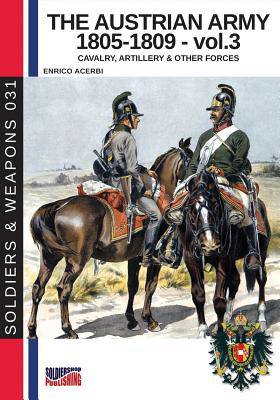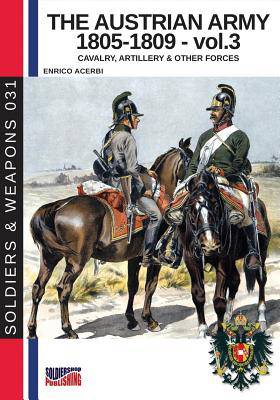
- Afhalen na 1 uur in een winkel met voorraad
- Gratis thuislevering in België vanaf € 30
- Ruim aanbod met 7 miljoen producten
- Afhalen na 1 uur in een winkel met voorraad
- Gratis thuislevering in België vanaf € 30
- Ruim aanbod met 7 miljoen producten
Omschrijving
The great reorganization of the Cavalry came with the end of the year 1801 and matched in a reduction of the Regiments, with the increase in the number of Squadrons, now eight, in order to form four divisions of two Squadrons each. With the mentioned increase of the divisions, in 1802, every German regiments had a second Major, which fact established the fourth division, as it already was effective among Hussars and Uhlans, calling it the "second majors-division". Each regiment had officially a Leib (1st) or Obrist division, a Lt. Colonel division and the 1st-2nd Major divisions.
Curassiers and Dragoons became the official Heavy Cavalry, abandoning the devious term of Light Dragoons, while Chevauxlegers, Hussars and Uhlans became the Light Cavalry. After the 1805 campaign (Verordnung of August 1, 1806), the second Major-divisions were disbanded, in the German Heavy Cavalry regiments, which took again the stand of six squadrons (in War there was always a reserve Escadron acting as a Cadre formation, as before).
The uniforms' confusion mounted in 1802, in the occasion of the renewed conversion of some Dragoon Regiments, into Chevauxlegers regiments, when it was prescribed, for both types of branches, the white rock colour and equal Facing either for Dragoons, or for Chevauxlegers Regiments, apart that the former had white buttons, instead of golden ones. But in 1807, again was ordered a green rock colour for three Chevauxlegers regiments.
In this somewhat ambiguous manner, the Austrian cavalry entered the 1809 campaign, in which it had multiple opportunities to honor the battlefield.
This volume also mentions the various Service's Army Branches, which, in any case, were the most stable structures of K.K Wehrmacht during the Napoleonic Wars.
Specificaties
Betrokkenen
- Auteur(s):
- Uitgeverij:
Inhoud
- Aantal bladzijden:
- 102
- Taal:
- Engels
- Reeks:
- Reeksnummer:
- nr. 31
Eigenschappen
- Productcode (EAN):
- 9788893273794
- Verschijningsdatum:
- 1/10/2018
- Uitvoering:
- Paperback
- Formaat:
- Trade paperback (VS)
- Afmetingen:
- 178 mm x 254 mm
- Gewicht:
- 254 g

Alleen bij Standaard Boekhandel
Beoordelingen
We publiceren alleen reviews die voldoen aan de voorwaarden voor reviews. Bekijk onze voorwaarden voor reviews.











